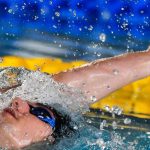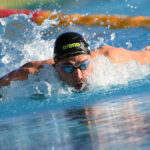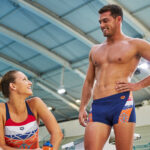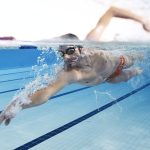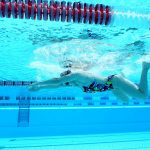Little swimmers grow up: Do you know everything about water safety?
How many times have you heard that “swimming is good for correcting children’s posture” or that “it is vital for children to strengthen their muscles”? All true, certainly, but swimming is much more. Swimming is definitely a very interesting sport and is suitable for the mental and physical development of the little ones; it is also important for these swimmers in the making to study the various aspects of the sport in order to fully exploit all its benefits.
Summer is finally here, a time for vacation and relaxation, but whatever your destination, you’ll want to take every precaution to protect your children from the hidden dangers of water. Drowning, sunstroke, sunburn, but also dermatitis, conjunctivitis and infections are just some of the dangers confronting the children while in vacation.
However, by adopting responsible behavior and paying attention to a few things, you can do much for greatly reducing exposure to dangerous situations.
1) Before leaving, take your child to the pool and teach him or her to be safe in the water
Search for a near-by aquatic center and entrust your little one to qualified instructors who will teach him or her to move in the water and then to swim. In fact, a “water trained” child, will know better how to deal with the hidden dangers of water.
Knowing how to swim can be nice and fun but also useful, considering that drowning is the third leading cause of accidental death in the world after road accidents and falling*.
2) Never leave them alone
Even if your son or daughter took year-round swimming lessons, it is always better to accompany them and keep them under close surveillance, maybe playing with them in the water.
Regardless if you are using an inflatable basin one meter in diameter, or if you are on a sunny beach at the ocean, it takes only a few centimeters to be in danger.
For children under six, we recommend you to use arm floaties, inflatable life rings or jackets that leave their arms and legs free and keep their head above the water. Always remember that these aids are not a guarantee against drowning: therefore, keep your eyes open!
3) Do not underestimate the heat and the cold
The sun, the heat, and the wind may cause dehydration which may lead to heat stroke, headache, nausea, or fever.
Therefore, it is important to have your children drink often during the day, without waiting for them to ask for it. The sensation of thirst is a signal that must be anticipated.
Water’s temperature is another parameter to be taken into consideration. Remember that while the water exceeds 30 ° in the pool in which the children are taking swimming lessons, the sea temperature can be lower than 25° even at the height of summer, not to mention the lakes or rivers where it may drop below 20 °. There is the risk of hypothermia, a situation in which we lose more heat than that produced by our body.
In such cases, try to reduce the time spent by your child in the water (to prevent digestion-related discomfort, avoid getting in the water after the meals) and have your child wear one piece swimsuit or wetsuit.
4) Beware of overcrowded places
Large spaces, without cleared marked boundaries, are poorly tolerated by children; therefore, it is better to explore with them the surrounding area, to prevent them from getting lost and being frightened.
It is preferable to choose facilities which are providing life guard services; you may even introduce your children to the life guards.
Finally, to ensure your protection and that of your children, remember to put in your bag a good sunscreen and sunglasses with adequate UV filter. Sun may become a problem if you are not properly protected. To learn more read “Sun safety at the beach: UV protection for children”
All that remains is to wish you a happy holiday: have fun, but always be careful!
—————
Notes: * Fact sheet N°347 , World Health Organization, November 2014
Written by:
Alessandro Bacchi
Alessandro has spent a lifetime in the pool, first as a member of the Italian team taking part in various events, such as World and European Championships and World Cup events, and now as a coach passing on his expertise to train athletes of all ages at a club just outside Milan. As a swimming instructor he works with people with all kinds of disabilities on a daily basis, trying to pass on his love of water to each and every one of them.
